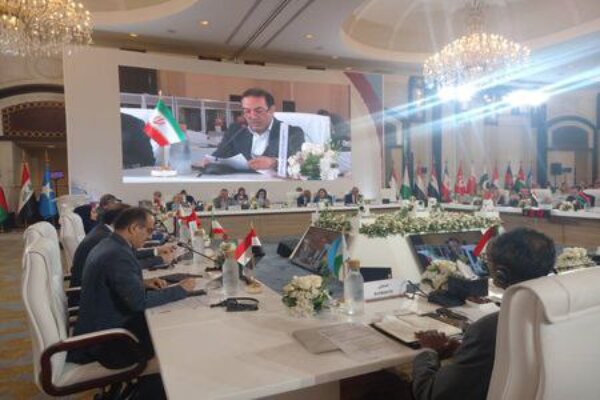Iran calls on WHO to deal with unilateral coercive measures in health sector

TEHRAN –The Iranian deputy health minister has called on the World Health Organization to establish a working group to address the impacts of unilateral coercive measures on health in the region and to develop possible solutions consistent with basic human rights.
“We call on the international community to make every possible effort to condemn these illegal acts and force the responsible parties to deal with unfair sanctions immediately,” the health ministry’s website quoted Alireza Raeisi as saying.
He made the remarks while addressing the seventy-first session of the WHO Regional Office for the Eastern Mediterranean (EMRO).
The meeting is being held in Doha, Qatar, from October 14 to 17 under the theme of “health beyond borders: action, access, equity.”
The official further noted coercive sanctions have denied nations the right to access essential medicines and medical tools.
He also highlighted the significance of sharing precise data as well as having a collective commitment to universal health coverage to overcome the challenges in the region.
“To promote regional health, it is essential to identify the capacities, capabilities, and successful strategies in the region,” Raeisi noted.
The official also underscored the importance of political and social leaders’ commitments to public health, strengthening the global leadership of the World Health Organization, recognizing health as the basic ‘public good’, ensuring equal access to health for all countries, and enhancing the role of the World Health Organization in facilitating the share of knowledge and technology to all member states regardless of any political and economic barriers.
Iran attending 71st session of the WHO EMRO
A delegation led by Health Minister Mohammad-Reza Zafarqandi is attending the Seventy-first session of the WHO EMRO.
The health minister is scheduled to deliver a speech on various regional health issues, such as the status of diseases like dengue fever and monkeypox in regional countries, the health status in Gaza and Lebanon, as well as the achievements of the Islamic Republic of Iran in the field of health despite sanctions.
On the sidelines of the event, Zafarqandi is scheduled to hold meetings with the health ministers of the state countries, as well as Tedros Adhanom Ghebreyesus, WHO Director General, and Hanan Hasan Balkhi, WHO director of the Eastern Mediterranean Regional Office.
The annual meeting of the member countries of EMRO is one of the most important regional events in which Ministers of health and high-level representatives of the 22 Member States and territories of WHO’s Eastern Mediterranean Region, as well as representatives of partner organizations and civil society, will meet to discuss priority public health issues, make decisions, and regulations.
During the session, Balkhi will present her regional vision for the endorsement of Member States. The vision, which aims to secure the best attainable level of health for everyone in the region, includes 3 flagship initiatives: expanding timely and equitable access to life-saving medicines and vaccines; building a more resilient health workforce, and reducing the morbidity, mortality, and social costs associated with substance use disorders.
The Regional Strategic Operational Plan describes what WHO aims to achieve in the coming 4 years in response to country priorities, and how it will do it.
The Regional Committee will also include discussions of priority public health issues, technical papers, updates and a wide range of panel discussions and side events.
MT/MG
